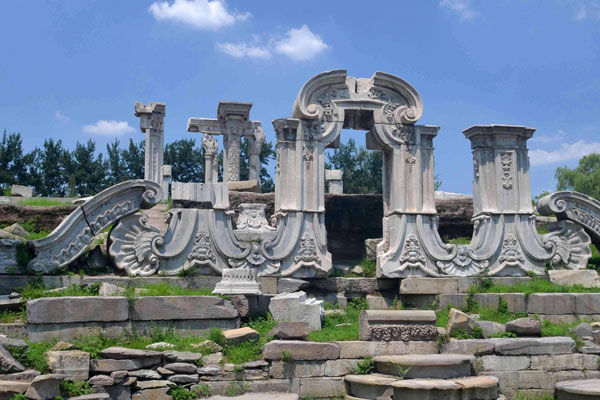 |
|
Dashuifa site in Yuanmingyuan [Photo/CGTN] |
The initial construction of the palace began in 1707 during reign of Emperor Kangxi, and the expansion continued for next 150 years in the Qing Dynasty (1636-1912 AD). It was used to serve emperors as an imperial garden to take a rest or handle state affairs during the hot summer months.
However, Anglo-French forces sacked and looted Yuanmingyuan and burned it to the ground on October 18, 1860 during the Second Opium War. The garden subsequently suffered continual damage at the hands of warlords, bandits, and the Eight-Power Allied Forces.
Since 1996, a total of three excavations have been conducted in the palace resulting in the discovery of more than 50,000 pieces of relics so far. The most recent excavation began in 2013 and will last until 2020, making it the largest excavation project in Yuanmingyuan.
But numerous relics remain overseas. UNESCO estimated in 2006 that about 1.6 million Chinese relics were in the possession of 47 museums worldwide, including one million from the Old Summer Palace alone.